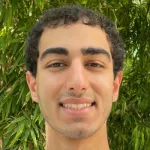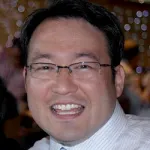
Home Department: Mathematics
Mentor: Richard Frock (Radiation Oncology - Radiation & Cancer Biology)
“Application of HTGTS (High Throughput, Genome-wide Translocation Sequencing) to Confirm de novo Deletions and Duplications at Recombination Hotspots in Mouse Germlines”
Numerous DNA double-strand breaks (DSBs) arise during meiotic cell division (meiosis) to initiate genetic recombination. These DSBs are usually repaired correctly, but in this project, Cheyenne will try to confirm a distinct type of mutational event in which mutations (i.e., deletions) form via joining of ends from two closely spaced DSBs (double cuts) within a single chromosomal location containing numerous mutations (hotspot) or at adjacent hotspots on the same or different chromosomal halves (chromatids). Deletions occur in normal meiosis but are much more frequent when DSB formation is dysregulated in the absence of the DSB repair enzyme, ATM kinase. Mutational events between chromosomes point to multi-chromatid damage and aborted gap repair. Some deletions contain DNA from other hotspots, indicating that double cutting at distant sites promotes insertion mutations. End joining at double cuts can also yield tandem duplications or extrachromosomal circles. Cheyenne is preparing to assay DSB repair using HTGTS from two different meiosis-specific hotspot regions on chromosome 1 in normal and germline cells (spermatocytes) without ATM kinase. This work will provide new valuable mutational data to confirm whether the rearrangements of chromosomes within mouse germline cells are random events or systematic.

